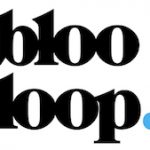Sedgwick County Zoo generates significant economic benefits locally, regionally and nationally, according to a new analysis conducted on behalf of the Association of Zoos and Aquariums (AZA).
Related:Attractions News: Blooloop Facts Round Up May & June 2011
“Sedgwick County Zoo supports the community in more ways than one, ” said Jim Maddy, President and CEO of AZA. “Not only does Sedgwick County Zoo have a deep commitment to science education and wildlife conservation, but it also generates valuable economic benefits to the region.”
AZA has commissioned a state-by-state economic impact analysis conducted by nationally recognized economist, Dr. Stephen Fuller. AZA-accredited zoos and aquariums generated the following impacts for the state of Kansas:
$55 million in economic activity (contribution to national GDP);
$18.8 million in personal earnings (salaries and wages); and 635 jobs.
“Zoos and aquariums, including Sedgwick County Zoo, play a significant role in the economy of Kansas, ” added Maddy.
Sedgwick County Zoo is a valuable community resource, including visits by nearly 40, 000 school children every year, and a vital role in wildlife conservation. Beyond these important community benefits, Sedgwick County Zoo has the following economic impact:
Sedgwick County Zoo employs 108 full-time people;
Sedgwick County Zoo spends $ 11, 511, 361. each year on goods and services;
Sedgwick County Zoo serves more than 500, 000 visitors each year.
Dr. Fuller writes in his report:
“Annual spending by zoos and aquariums for operations and capital projects generate significant economic benefits for their host jurisdictions. These benefits build from the initial outlays, as they are re-spent across the breadth of the economy. These benefits accumulate and expand the economy’s total output as measured by their contributions to Gross Domestic Product and respective Gross State Products. These benefits also generate new personal earnings to the benefit of workers residing in the host jurisdictions and support job growth locally, regionally ands nationally.”
The cumulative economic impact of 212 AZA-accredited zoos and aquariums as they serve more than 179 million annual visitors is as follows:
$16.0 billion in economic activity (contribution to national GDP);
$ 4.7 billion in personal earnings (salaries and wages); 142, 000 jobs.
A copy of the report can be found at https://www.aza.org/PressRoom/NationalEconomicImpact/
About The Sedgwick County Zoo
The Sedgwick County Zoo is a not-for-profit organization, accredited by the Association of Zoos and Aquariums (AZA). Look for the AZA logo whenever you visit a zoo or aquarium as your assurance that you are supporting a facility dedicated to providing excellent care for animals, a great experience for you and a better future for all living things. With its more than 200 accredited members, AZA is a leader in global wildlife conservation and your link to helping animals in their native habitats. For more information, visit https://www.aza.org/. Sedgwick County Zoo is also a member of the World Association of Zoos and Aquariums https://www.waza.org/. Sedgwick County Zoo has been recognized with national and international awards for its support of field conservation programs and successful breeding of rare and endangered species. It’s the No. 1 outdoor family tourist attraction in Kansas and is home to more than 2, 500 animals of nearly 400 different species. For more information, visit www.scz.org.
Founded in 1924, the Association of Zoos and Aquariums is a nonprofit organization dedicated to the advancement of zoos and aquariums in the areas of conservation, education, science, and recreation. Look for the AZA logo whenever you visit a zoo or aquarium as your assurance that you are supporting a facility dedicated to providing excellent care for animals, a great experience for you, and a better future for all living things. The AZA is a leader in global wildlife conservation, and your link to helping animals in their native habitats.
For more information, please visit www.aza.org.









